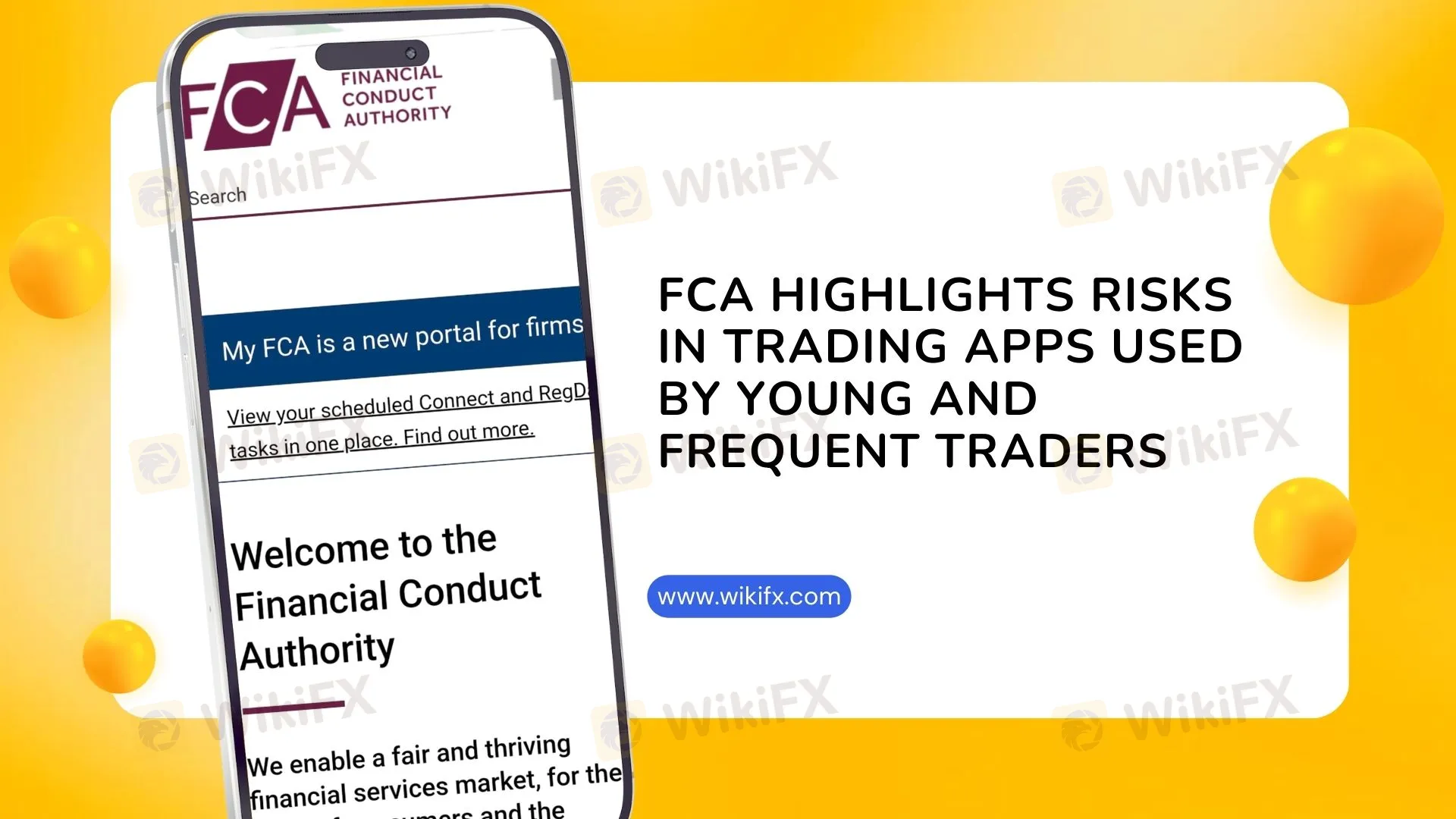简体中文
繁體中文
English
Pусский
日本語
ภาษาไทย
Tiếng Việt
Bahasa Indonesia
Español
हिन्दी
Filippiiniläinen
Français
Deutsch
Português
Türkçe
한국어
العربية
FCA Highlights Risks in Trading Apps Used by Young and Frequent Traders
Abstract:A new FCA report finds that trading app features may drive excessive trading among younger users, with some platforms lacking adequate checks for high-risk products.

The UK Financial Conduct Authority (FCA) has released a multi-firm review and behavioral research highlighting key risks associated with trading apps, particularly those used by young and frequent traders.
Key Findings on Business Models and Engagement Practices
The review covered 12 trading app providers, revealing diverse business models. Some acted as introducers, directing users to affiliated platforms. Revenue streams included commission, subscription fees, and interest from idle balances. FCA noted that some firms lacked sufficient oversight of pricing fairness and investor value.
Firms employed digital engagement practices (DEPs), such as push notifications and gamified incentives. While all firms showed some awareness of the risks, FCA cautioned that some app designs may unintentionally drive higher trade frequency and risk exposure.
Target Market and Product Suitability Concerns
The FCA observed that several apps did not adequately define their target customer profiles. In some cases, complex or high-risk products were accessible to users without sufficient knowledge or experience. Appropriateness testing was found to be weak in certain apps, allowing unqualified investors to access unsuitable offerings.
Behavioral Research Shows Demographic Impact
FCA's behavioral study indicated that trading apps with more gamified elements attracted users with lower income and higher trade frequency. These users also tended to have worse investment outcomes, raising questions about how app design may be linked to real-world financial results.
Conclusion
The FCA has not mandated specific changes but encourages firms to examine their app designs, especially concerning user engagement features, pricing transparency, and risk control procedures. With trading apps rapidly growing in popularity, especially among younger demographics, proper oversight remains critical to ensuring responsible investment access.
Disclaimer:
The views in this article only represent the author's personal views, and do not constitute investment advice on this platform. This platform does not guarantee the accuracy, completeness and timeliness of the information in the article, and will not be liable for any loss caused by the use of or reliance on the information in the article.
Read more

Using Any of These Illegal Forex Trading Apps? Stop Before It Turns into a Crisis
The Reserve Bank of India (RBI) has listed out some illegal forex apps India. Read this article to know some of those apps.

5 Reasons to Stay Away from Core Prime Markets
The Forex market is a very unpredictable, complex, and risky place. There are many brokers that appear genuine but can steal your hard-earned money. So, staying alert is the only way to survive in this dynamic environment. Therefore, in this article, we are sharing 5 warning signs about Core Prime Markets.

Think Before You Trade! Unlicensed Brokers List Inside
The French regulator AMF has issued a warning against five unlicensed brokers. Investors are encouraged to verify the list to protect themselves from fraud.

Citibank Sued in $20M Romance Scam Tied to Fraudulent Transfers
Citibank faces a lawsuit over a $20M romance scam. Plaintiff alleges the bank enabled fraud by failing to block suspicious transfers.
WikiFX Broker
Latest News
Asian chip stocks rise after Nvidia reclaims title of the world's most valuable company
Nvidia's comeback sparks a rally in Asian chip stocks
CNBC Daily Open: Despite all the uncertainty, the S&P 500 is flirting with record highs — strange times
PU Prime and AFA Announce Partnership at Madrid Event
eToro UK Launches 4% Stock Cashback Card: Earn Up to £1,500 Monthly
EBC Expands ETF CFD Offering & Copy Trading Education Partnership
Gold Prices Continue to Fall as Israel, Iran Agree on Ceasefire
China steps up push to internationalise the yuan as global dollar dominance wavers
Multibank Group Offices: Global Presence and Contact Info
ESMA Proposes Reporting Reforms That Could Cut Costs for Forex Brokers
Currency Calculator


